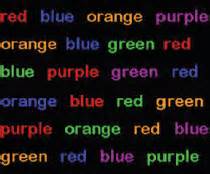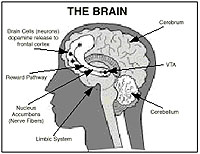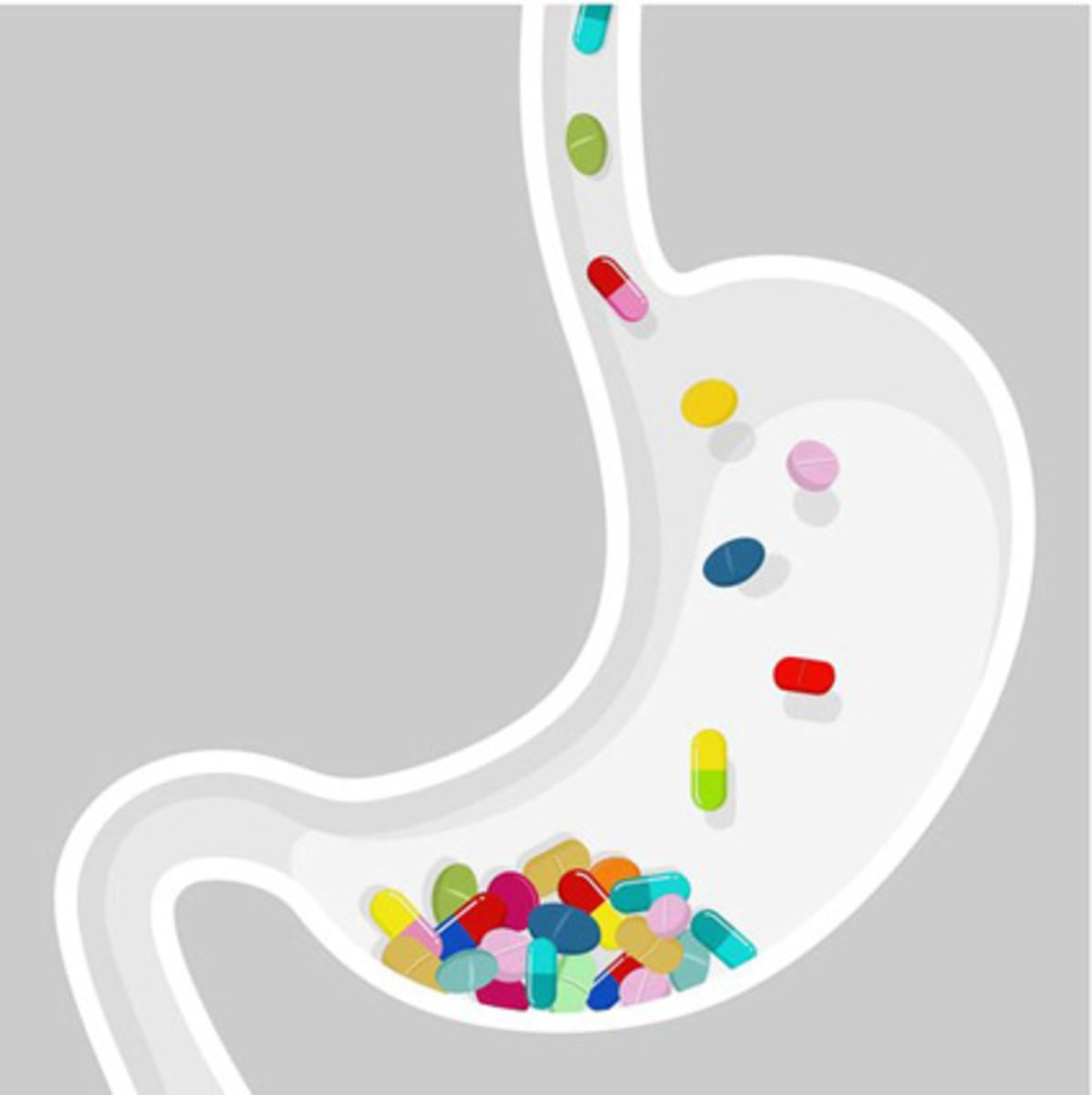How We Focus and Concentrate
The Ability to Concentrate

Our Ability to Pay Attention
Are our brains in charge of our concentration?
Neuroscientists and neuropsychologists are very interested in our ability to pay attention. Focusing on certain things, while filtering out other things is actually a fascinating ability we have.
Throughout the day we process a tremendous amount of information. At times we may feel overwhelmed, especially when our brains are not used handling some of it. Technology and the demands in our day are majors distraction and interference in our ability to focus.
Often, we don’t give credit to the costs distractions impose. We actually have a limited supply to think and focus in the course of a day. Our attention becomes diminished with each deep thinking we have to do. We may not realize that concentration is a limited resource. Paying attention and then getting distracted, takes more energy than we may realize to bring us back to focusing.
The Stroop Test

The Ability to Focus
Mental Inhibition
High level thinking requires energy in the form of glucose. Our brains prefer to focus on things that are right in front of us. We really want to use the least amount of effort we have to. When we have outside distractions, it becomes harder to concentrate and more likely we will make more errors. Our mental performance is dependent on how focused we are on a task.
Staying focused requires specific circuitry involving the neurons of the brain. Focusing is a matter of stopping the wrong things from coming into our attention.
Read the color, not the words aloud as fast as you can.
It is more than natural to read the words instead of saying the colors you see them in. It is called interference. When we see the words, we see the color and the word. The two pieces we visually see conflict and we have to make a choice. We have been taught that the meaning of the word matters more than the color we see the word written in.
It is easier for our minds to say the color instead of the word. It takes a sort of mental inhibiition to resist what comes natural. This kind of inhibition has showed up on brain scans in the prefrontal cortex of the brain in area directly behind the left and right temple called Ventrolateral Prefrontal Cortex. This is the area of the brain that inhibits many of our responses such as thinking, movement, and emotional responses. Researchers believe that it is our ability to inhibit these responses that is related to how well we can focus.
The processes we use to inhibit and control our responses don’t always work as well as we need them, and can be fragile. This is why it can become difficult to stop our impulses and urges sometimes. Other times we do it very well, and sometimes not.
Your Test Results
How Did You Do on the Stroop Test?
How Our Brain Helps Us Concentrate
Distractions obviously interfere with our ability to focus. When we are aware of the thoughts and processes that are going on inside of ourselves, we can sometimes catch the impulsiveness that can lead us astray.
When we make a decision to do something, it very often is connected to something physically we are doing. This engages our muscles and creates a sense of arousal in our brain that sets off a chain reaction that creates a momentum to get us going.
The more mindful we are, the more aware we become of our own thoughts. When we are feeling overwhelmed, our brain gets exhausted too.
The more tired you are, the harder the Stroop test is. Try the test when have put in a long day. Take the test again when you are more well rested and compare your results. Most likely you will do better, because your direct attention has less competition.
The Stroop Test is commonly used by neuroscientists to study how we focus. The Stroop test was developed by John Ridley Stroop in 1935. Volunteers are shown words that are printed in various colors and told to read the color of the text, not the word. So for example yellow, the word yellow is written in green. Which color are you tempted to say?
The Stroop test demonstrates most people’s ability to read words faster and more habitually than one can name the color the word is written in. The ability to automatically process words is easier on our thought processes than to take the mental effort of naming the color of the ink. Science has identified the anterior cingulate part of the brain that helps us make the correct response when our mind has two conflicting signals. This area of the brain is located between the right and left half of the frontal lobe of the brain. It is associated with many cognitive processes. This area of the brain seems to be a buffer between our thought processes and impulsive thoughts.
These though processes are called directed attention that helps us manage our thoughts by inhibiting one response so that we can respond or react in a different way. this is how we can stay clearheaded and be productive. This is how we can concentrate and not let our environment distract us.
Brain Games from Amazon
The Brain and Focusing

Directed Attention
Directed attention helps us behave in a certain way so that we can achieve what we want to get done, even though there are other things around us that are competing for our attention. This is how we can help others, even if our own needs are not met, and this is how we stay focused on what we view as the bigger picture.
The problem with directed attention is that it is a limited and scarce mental resource we have. If we continually demand this degree of concentration from ourselves, we will tire mentally, and become less cognitively effective. When this happens, it is called directed attention fatigue (DAF).
When we tire mentally, we can become irritable and impulsive and sometimes regret our actions. We can become impatient and make poor decisions, and become easily distracted. This of course can interfere with positive interactions in our environment and with others.
So the next time you are having trouble focusing, you might want to give yourself a break. It takes more energy than you may have realized to concentrate, to do high level thinking, to be created. Distractions that take you away from the things you are trying to do, are often more internal than external. The solution to the distractions we have around us can sometimes be turned of or tuned out. We need self awareness to realize the distractions we have internally, sometimes it is a simple thing like resting. If you want your mental performance to improve, create an external and internal environment that has the least amount of distractions and focusing will come more naturally.











